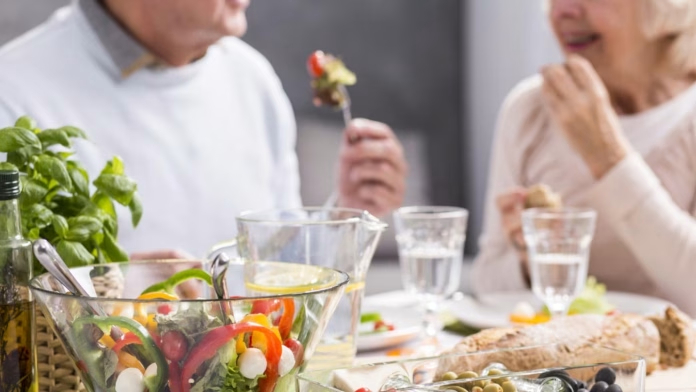As we age, our dietary needs change, and maintaining a balanced and healthy diet becomes increasingly important. Cooking healthier meals for the elderly requires special attention to their nutritional requirements and unique challenges, such as reduced appetite, dental issues, and mobility limitations. In this ultimate guide, we will explore must-try cooking techniques and tips to create delicious and nutritious meals that cater specifically to the elderly’s needs, promoting their overall well-being.
Understanding the Nutritional Needs of the Elderly:
The first step in cooking healthier meals for the elderly is understanding their nutritional needs. As people age, their metabolism slows down, and they may require fewer calories. However, their need for essential nutrients like protein, vitamins, minerals, and fiber remains crucial. We will delve into the key nutrients that should be included in their diet and suggest food sources that are rich in these nutrients.
2. Balancing Macronutrients:
Creating balanced meals is essential for the elderly to maintain optimal health. We will discuss the ideal proportions of macronutrients – carbohydrates, proteins, and fats – in their daily diet. Additionally, we will highlight the importance of incorporating whole grains, lean proteins, and healthy fats into their meals to support heart health and overall well-being.
3. Enhancing Flavor with Herbs and Spices:
As people age, their sense of taste and smell may diminish, leading to a loss of appetite. To combat this issue, we will explore the use of herbs and spices to enhance the flavor of meals without relying on excessive salt or sugar. This section will include a list of senior-friendly herbs and spices, along with flavor combinations that can invigorate their taste buds.
4. Soft and Easy-to-Chew Meals:
Dental problems can be a significant barrier to elderly individuals enjoying their meals. Therefore, we will present various soft and easy-to-chew meal ideas that are not only nutritious but also gentle on sensitive teeth and gums. These meal options will help prevent malnutrition and ensure that the elderly continue to receive the nutrients they need.
5. Quick and Nutritious One-Pot Meals:
Time and energy constraints can make cooking a daunting task for the elderly. Quick and nutritious one-pot meals can be a lifesaver in such situations. We will provide a collection of easy-to-make recipes that require minimal effort, cleanup, and cooking time while still packing a nutritional punch.
6. Incorporating Superfoods for Optimal Health:
Superfoods are nutrient-dense foods that offer an array of health benefits. In this section, we will introduce various superfoods that are suitable for the elderly, such as blueberries, spinach, nuts, and fatty fish. These ingredients can be easily integrated into everyday recipes, providing an extra nutritional boost to their meals.
7. Managing Special Dietary Needs:
Some elderly individuals may have specific dietary requirements due to health conditions like diabetes, hypertension, or food allergies. We will address these special dietary needs, offering tips on how to modify recipes and create personalized meal plans that cater to their health concerns while remaining delicious and satisfying.
8. Encouraging Hydration and Snacking:
Staying hydrated is crucial for seniors’ well-being, as dehydration can lead to various health issues. We will discuss creative ways to encourage the elderly to drink enough water and offer ideas for hydrating snacks to keep them nourished throughout the day.
9. Social Aspects of Mealtime:
The social aspect of mealtime plays a significant role in the elderly’s enjoyment of their food. We will explore the importance of companionship during meals and suggest strategies for making mealtime a pleasant and enjoyable experience, whether eating with family, friends, or in a communal setting.
10. Preparing Meals in Advance:
Meal prepping can be a game-changer for the elderly, especially if they have limited mobility or energy. We will provide a step-by-step guide on how to plan and prepare meals in advance, ensuring that they always have access to healthy and delicious options without the hassle of daily cooking.
Final Thoughts:
Cooking healthier meals for the elderly is a rewarding endeavor that can significantly impact their overall health and well-being. By understanding their nutritional needs, incorporating the right ingredients, and being mindful of their unique challenges, we can create delicious and nutritious meals that cater to their specific requirements. This ultimate guide has equipped you with must-try cooking techniques and tips to ensure the elderly enjoy a healthy and enjoyable dining experience, promoting a higher quality of life in their golden years.





